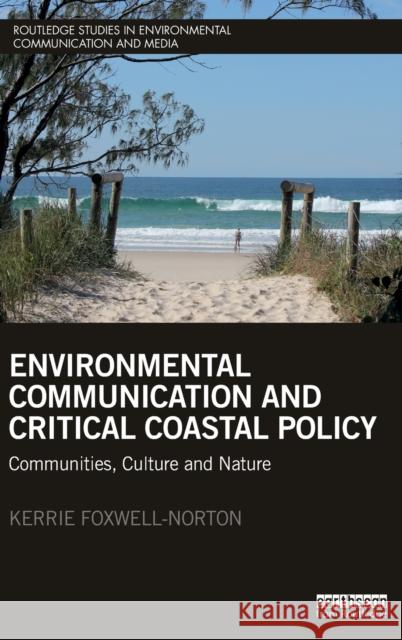Environmental Communication and Critical Coastal Policy: Communities, Culture and Nature » książka
Environmental Communication and Critical Coastal Policy: Communities, Culture and Nature
ISBN-13: 9781138797543 / Angielski / Twarda / 2017 / 148 str.
Environmental Communication and Critical Coastal Policy: Communities, Culture and Nature
ISBN-13: 9781138797543 / Angielski / Twarda / 2017 / 148 str.
(netto: 723,00 VAT: 5%)
Najniższa cena z 30 dni: 654,86
ok. 22 dni roboczych.
Darmowa dostawa!
The vast majority of the world's population lives on or near the coast. These communities are an extraordinary and largely untapped resource that can be used to mitigate planetary disaster and foster environmental stewardship. Repeated waves of scientific fact and information are not inciting action, nor apparently producing enough momentum to change voting behaviour towards a progressive environmental politics. A critical coastal policy, underpinned by a deeper understanding of environmental communication, can offer something new to this status quo. Environmental Communication and Critical Coastal Policy argues that more science and 'better' communication has been largely responsible for the lacklustre response by citizens to environmental challenges. Foxwell-Norton asserts that the inclusion of a range of local meanings and cultural frameworks with which experts could engage would better incite participation in, and awareness of, local environmental issues. The value and possible role of 'geo-community media' (mainstream, alternative and social media) is examined here to illustrate and support the key argument that meaningful local engagement is a powerful tool in coastal management processes. This is a valuable resource for postgraduates, researchers and academics across environmental science and management, policy studies, communication studies and cultural studies.











